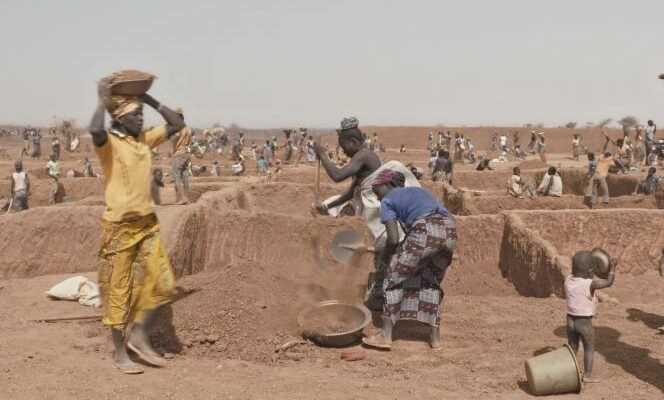THE OPINION OF THE “WORLD” – MUST SEE
It is a corner of semi-deserted land of which we can only perceive the extreme pallor and the last rattle of the leaves scorched by the sun. An area without outline, sometimes split by solitary beings of whom we do not know where they come from or where they are going. Inscribed in the fixed and tenacious shots of Swiss filmmaker Olivier Zuchuat, these random crossings make us experience the drama of a resigning land. Thus, against the tide of films that tell of migratory exoduses, this documentary proposes to crisscross this little piece of forgotten universe, in the north of Burkina Faso, to talk about those who remain.
In Kamsé, villagers are preparing to embark on a major project: create a farm to repel the disaster. Around this agricultural project, the film judiciously chooses not to fulfill the specifications of a practical manual of the good gardener. Devoid of voice-over, it provides some in situ clues on the technique of zai (which consists of digging a network of dikes and ponds in order to plant trees and install fields). What there is to say is less important than what is in question, in this case the distribution of work between inhabitants, the tensions between beliefs and techniques and the co-belonging of men and nature.
Surveyor filmmaker
To highlight the topographical transformation of the places, the filmmaker works as a surveyor, and this is the great success of the film. Renouncing close-ups and heroes, he persists in capturing the main lines of this metamorphosis. In this regard, The Kamsé Perimeter opens with a beautiful sequence shot: a forehead essentially made up of women, babies on the back and pickaxes in hand. Soon they will scrap in active columns, in the furnace, to push back the desert, while the men – the youngest of whom have gone to work in the city – will appear to us as a numb or talkative rearguard.
And then there is the night, regular as a metronome, as black as the day is white, absorbing the blows of the shovel and the piles of earth, confining us to a state of attentive vigil. In the light of a campfire, while waiting for the next rain and the harvest, while effort and time are suspended, only the sound of a small radio emerges which announces another tragedy: the assaults jihadists coming from a little further north. In a prodigious mix of strength and fragility, Zuchuat delivers an atmospheric portrait of a slow-moving ecological battle fueled by the women of Kamsé, appearing out of nowhere.
You have 2.83% of this article to read. The rest is for subscribers only.
